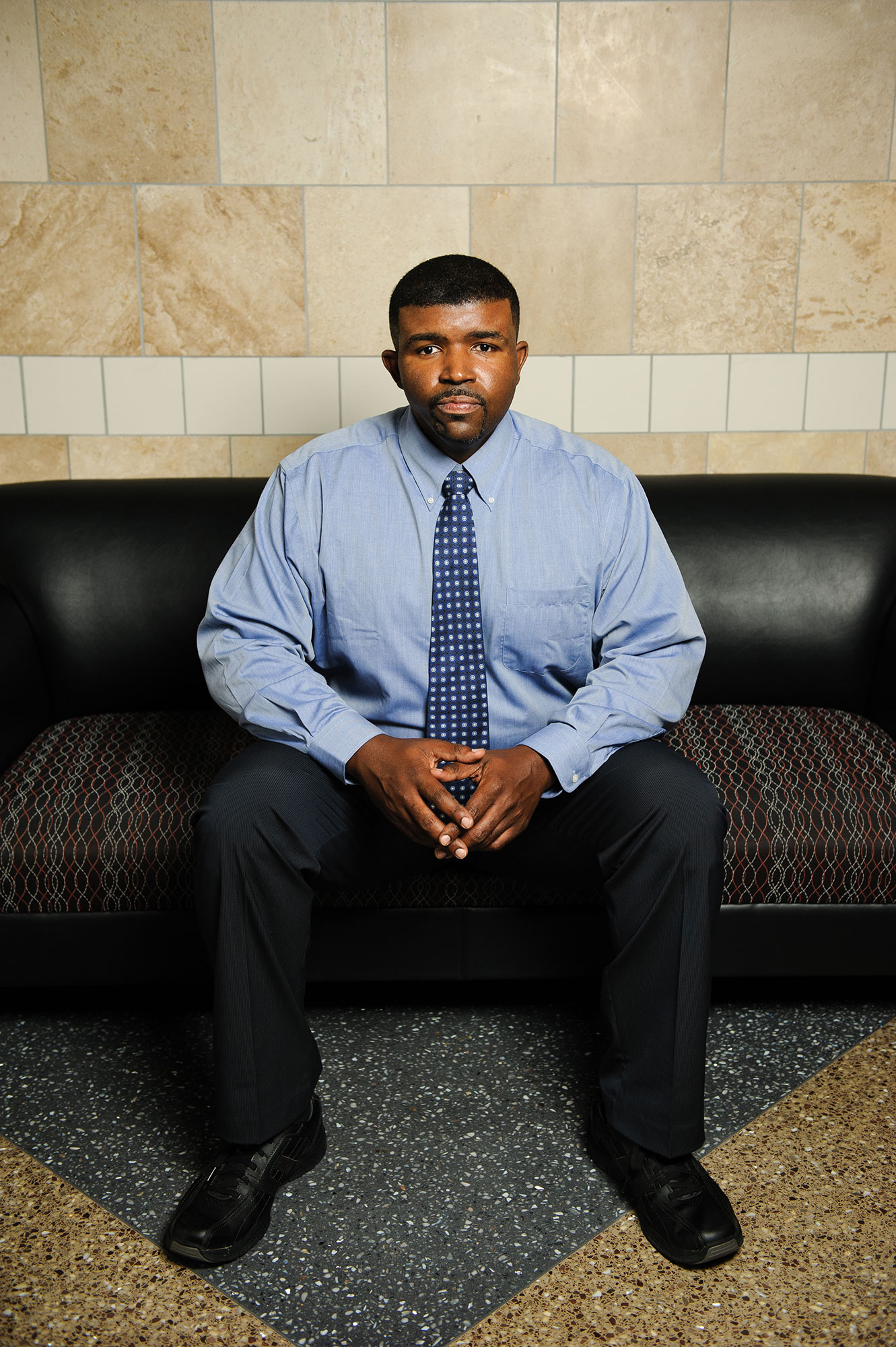
Dr. Charles Williams, Ph.D. ’13, is the engineering manager for the city of Jackson, Miss.
Charles Williams was certain he was done with school when he earned a bachelor’s degree in civil engineering from the University of Mississippi almost 20 years ago.
Over the years, Williams would find that, despite his success, he still hadn’t quite found that one niche he was most passionate about. It would take four degrees, 20 years and a few semesters doing research at The University of Alabama for him to find his calling.
Soon after college he took a job as principal investigator for the geotechnical division at the Mississippi Department of Transportation, where he was in charge of preparing geotechnical reports for bridge replacements and analyzing soil samples.
Williams was comfortable with the work, but he had not spent much time previously analyzing soil samples. After speaking with a few co-workers, Williams learned the Army Corps of Engineers offered a graduate program that was available at Mississippi State University, so he decided to brush up by taking a few classes. He enjoyed the two classes, so he enrolled in a graduate school program, concentrating in soils and pavement.
“I believe my decision to go back to school was primarily due to my desire to expand my knowledge about the geotechnical field and to increase my career opportunities at MDOT,” Williams said.
“I believe my decision to go back to school was primarily due to my desire to expand my knowledge about the geotechnical field and to increase my career opportunities.”Charles Williams
After finishing his master’s degree in civil engineering in 2000, he took a job with an engineering firm where, as part of his primary duties, he oversaw construction of two bridges.
It was during that time that some of Williams’ older co-workers advised him that a background in business could be beneficial for an engineering career. Williams took their advice and, in 2003, earned an MBA from Bellhaven University in Jackson, Miss.
Now that he had three degrees, two more than he had ever considered pursuing, he was certain he was done with school. He soon took a job as a city engineer for Jackson, a position that would become a cornerstone in his career.
With his new position, Williams was once again placed in a management role and tasked with overseeing construction projects. This responsibility required him to make crucial decisions and, as a result, he noticed how easily a detrimental mistake could be made if he was not careful. He soon became curious about the role neglectful management played in some of the nation’s most prominent engineering failures.
Around the time Williams began to contemplate pursuing these interests, he was informed that Dr. Edward Gibson, former chair of The University of Alabama Department of Civil, Construction and Environmental Engineering, was looking to increase the number of doctoral students in the department. Soon, Williams contacted Gibson and, after reflecting on his newfound research interest, Williams figured he wasn’t quite done with school after all.
“I would say that UA chose me,” Williams said. “I had some interest in construction management because a large portion of my job deals with that.”
Gibson soon left UA, and Williams began working with Dr. Philip Johnson, associate professor of civil, construction and environmental engineering, who replaced Gibson as his adviser. Williams was eager to begin investigating management’s role in engineering failures and, with the help of Johnson, published two academic papers on the subject.
He analyzed 47 engineering case studies, including famous engineering failures such as the collapse of the Hyatt Regency Hotel walkway in 1981 and the collapse of the Mianus River Bridge in 1983.
“When we looked at case studies that dealt with different engineering failures, we determined that most of the time it was not technical issues responsible for the disaster, it was inadequate management,” Williams said. “They were errors and omissions, things that typically would fall into the category of quality control and quality assurance post-design inspection. From that, we looked at trying to develop some strategies to help managers in that position reduce issues.”
Williams and Johnson developed a prototype that they called the “standard of professional practice,” designed to prevent management errors.
“We developed an original idea and basically wanted to see how the engineering community would embrace it,” Williams said. “I think the better that you can implement processes with your job, the better the outcome can be. It has worked well for me.”
Williams graduated in December 2013 after publishing a dissertation titled “The Need for Standard and Professional Practice in Civil Engineering.”
He continues to work for the city of Jackson and was recently promoted to engineering manager of the Engineering Division of the Public Works Department. He is certain that he is done with school now.
“In my case I was fortunate to have some older engineers who provided good wisdom to me when I was young and fresh out of school,” Williams said. “It was challenging at times to balance a career, family and academics, but it was a good decision to come to UA. I will always cherish my time being a part of the UA family.”